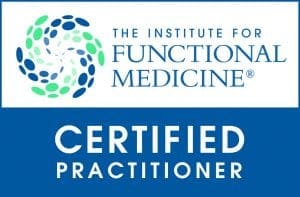One of the most common metabolic and endocrine conditions in women is PCOS (polycystic ovarian syndrome). PCOS affects 5-15% of women of reproductive age and is widely associated with anovulatory infertility.
Rotterdam criteria diagnoses PCOS once 2 of the following conditions are present in the patient:
- Hyperandrogenism (clinical or biochemical).
- Menstrual irregularity.
- Polycystic ovary morphology.
Also, it is common that women with this condition may present male-pattern hair loss, acne, hirsutism, subfertility, and may be prone to miscarriage, also are more likely to experience depression and anxiety. Nevertheless, PCOS treatment may have multiple approaches from hormone replacement therapy, metformin, acupuncture, and weight management. Nowadays, with the vast amount of information regarding stress management therapy and its benefits on patients with PCOS, mindfulness, and yoga have become part of novel studies.
One of the most common metabolic and endocrine conditions in women is PCOS (polycystic ovarian syndrome). PCOS affects 5-15% of women of reproductive age and is widely associated with anovulatory infertility.
Table of Contents
Rotterdam criteria diagnoses PCOS once 2 of the following conditions are present in the patient:
- Hyperandrogenism (clinical or biochemical).
- Menstrual irregularity.
- Polycystic ovary morphology.
Also, it is common that women with this condition may present male-pattern hair loss, acne, hirsutism, subfertility, and may be prone to miscarriage, also are more likely to experience depression and anxiety. Nevertheless, PCOS treatment may have multiple approaches from hormone replacement therapy, metformin, acupuncture, and weight management. Nowadays, with the vast amount of information regarding stress management therapy and its benefits on patients with PCOS, mindfulness, and yoga have become part of novel studies.
Insulin resistance and cardiometabolic impact in PCOS
The metabolic impact that hormones like insulin have on these reproductive conditions plays an essential role in developing the disease. Furthermore, excessive weight is commonly reported in these patients, along with insulin resistance leading to glucose intolerance and high blood lipid levels.
The elevation of insulin level is reported to stimulate androgens. Similarly, a high amount of androgen levels tend to elevate insulin levels, perpetuating the pathogenesis of PCOS. There are reported cases of lean women diagnosed with PCOS, although it is more common in overweight patients. This weight excess translates to an increased risk of related conditions and altered adipokine secretion, contributing to the metabolic derangements that characterize PCOS.
PCOS treatments therapies
The first therapeutic approach to PCOS is weight loss; it is reported that a reduction of 5% of body weight can improve menstrual regularity by 10%. On the other hand, medical therapies are targeted to mitigate personal symptoms; therefore, the utilization of anti-androgenic medications, ovulation inducers and hormonal contraceptives are the first-line pharmacological aide. Some of these medications may result in adverse effects like the risk of developing thrombosis and breast cancer.
Mindful yoga, a lifestyle modification
As we said before, many approaches have been used to promote a better outcome in patients with PCOS, and exercise has always been an essential part of this condition management. Furthermore, the studies that associate mindfulness yoga with a positive outcome in patients with PCOS provide an alternative path to those who don’t like to engage in intense aerobic activity.
Yoga is a low-impact exercise that can provide a wide number of benefits to those who practice it. Also, it doesn’t require a specific level of fitness or expertise, making it accessible and enjoyable to most patients. With that being mentioned, yoga practice promotes mindfulness, relaxation, awareness, and breathing exercises that reflect positively on insulin sensitivity and improvement of lipid profile.
One study targeted to analyze mindfulness yoga’s efficacy reported positive results on metabolic, endocrine, and reproductive measurements. Indeed, this study included 55 patients, 20 to 43 years old, previously diagnosed with PCOS by the Rotterdam criteria, and no insulin-sensitizing agents or hormone-based medication. Furthermore, 20 of these patients were intervened over a 3-mont period with a yoga class 3 times a week, while 11 patients remained without intervention as a control group. The metabolic, endocrine, and reproductive measurements were taken before the intervention began and then 3 months after the intervention, to be analyzed and compared with the initial measurement.
Androgen levels: a decreased level of testosterone was reported after a 3-month period in the yoga group, while there were no improvements in the control group. An additional measurement was taken after 6 months of the intervention, and free testosterone levels remained close to the improved levels after the 3-month yoga practice.
Metabolic parameters: while adiponectin levels were positively affected in the yoga groups, no significant changes were noted in HOMA-IR, insulin, blood glucose, BMI, or waist-to-hip ratio.
Some of the limitations reported in this study are the amount of the intervention, the targeted population, and how they decided to measure adiponectin. Indeed, previous studies with a 1-year intervention reported metabolic improvements, while the 3-month period failed to report changes. Furthermore, this study’s population had deficient compliance with the treatment, and only the data of 13 participants were used for data analysis. On the other hand, the participant’s age (m=31 years) was higher than in the previous analysis, which was thought to contribute to the metabolic conditions. Lastly, adiponectin, an anti-inflammatory adipokine linked to insulin sensitivity, was not properly measured. Although there was an improvement in these markers’ levels, the study did not measure the density of the adipokine. High-density adiponectin is associated with better metabolic outcomes, while low weight adiponectin has no beneficial effects.
Commitment to practice:
In the middle of a pandemic, attending a yoga class can be difficult. Nevertheless, is not recommended to go out to do breathing exercises around other people. That is why we recommend following a professional mindful yoga instructor to continue the treatment of PCOS.
Disease therapies have to cover many aspects of an individual’s life. Commonly, hormonal disbalances are associated with another personal factor that is not properly controlled. Sometimes, it could be diet, which is easily fixable with the help of a nutrition professional. Lack of exercise and a high amount of visceral fat is an important link between body composition and insulin resistance; therefore, physical activity has to be integrated into the treatment of hormonal disbalances. Finally, the use of pharmacological treatments to control hyperandrogenism, menstrual cycles and promote fertility has to be advised or used if your physician’s clinical criteria indicate so.
In conclusion, a pill may be able to change a part of the pathophysiology that hormonal disarrangement can provoke in your body but is not enough to guarantee a better quality of life. Indeed, most of the medications have a secondary effect, and it is highly recommended to combine their use with dietary advice and exercise combined with mindfulness. Now more than ever, stress managing techniques can improve multiple PCOS risk factors. The integration of lifestyle changes and commitment to them is essential to promote a change in metabolic, endocrine, and fertility factors in PCOS in a dose-dependent manner. Consistency is key. -Ana Paola RodrÃguez Arciniega. Master in clinical nutrition.
Lim, Siew, et al. “Barriers and facilitators to weight management in overweight and obese women living in Australia with PCOS: a qualitative study.” BMC Endocrine Disorders 19 (2019).
Patel, Vishesha, et al. “Regular Mindful Yoga Practice as a Method to Improve Androgen Levels in Women With Polycystic Ovary Syndrome: A Randomized, Controlled Trial.” The Journal of the American Osteopathic Association 120.5 (2020): 323.
Book an online appointment or Online nutritional assessment.
Additional Useful Links:
Set Appointments 24/7:
Book Online Appointment: https://bit.ly/Book-Online-Appointment
Take Your Functional Wellness Assessment Today:
Online Functional Medicine Assessment: https://bit.ly/functionmed.
General Disclaimer
Professional Scope of Practice *
The information herein on "Mindfulness vs. PCOS" is not intended to replace a one-on-one relationship with a qualified health care professional or licensed physician and is not medical advice. We encourage you to make healthcare decisions based on your research and partnership with a qualified healthcare professional.
Blog Information & Scope Discussions
Welcome to El Paso's Premier Wellness and Injury Care Clinic & Wellness Blog, where Dr. Alex Jimenez, DC, FNP-C, a Multi-State board-certified Family Practice Nurse Practitioner (FNP-BC) and Chiropractor (DC), presents insights on how our multidisciplinary team is dedicated to holistic healing and personalized care. Our practice aligns with evidence-based treatment protocols inspired by integrative medicine principles, similar to those found on this site and our family practice-based chiromed.com site, focusing on restoring health naturally for patients of all ages.
Our areas of multidisciplinary practice include Wellness & Nutrition, Chronic Pain, Personal Injury, Auto Accident Care, Work Injuries, Back Injury, Low Back Pain, Neck Pain, Migraine Headaches, Sports Injuries, Severe Sciatica, Scoliosis, Complex Herniated Discs, Fibromyalgia, Chronic Pain, Complex Injuries, Stress Management, Functional Medicine Treatments, and in-scope care protocols.
Our information scope is multidisciplinary, focusing on musculoskeletal and physical medicine, wellness, contributing etiological viscerosomatic disturbances within clinical presentations, associated somato-visceral reflex clinical dynamics, subluxation complexes, sensitive health issues, and functional medicine articles, topics, and discussions.
We provide and present clinical collaboration with specialists from various disciplines. Each specialist is governed by their professional scope of practice and their jurisdiction of licensure. We use functional health & wellness protocols to treat and support care for musculoskeletal injuries or disorders.
Our videos, posts, topics, and insights address clinical matters and issues that are directly or indirectly related to our clinical scope of practice.
Our office has made a reasonable effort to provide supportive citations and has identified relevant research studies that support our posts. We provide copies of supporting research studies upon request to regulatory boards and the public.
We understand that we cover matters that require an additional explanation of how they may assist in a particular care plan or treatment protocol; therefore, to discuss the subject matter above further, please feel free to ask Dr. Alex Jimenez, DC, APRN, FNP-BC, or contact us at 915-850-0900.
We are here to help you and your family.
Blessings
Dr. Alex Jimenez DC, MSACP, APRN, FNP-BC*, CCST, IFMCP, CFMP, ATN
email: coach@elpasofunctionalmedicine.com
Multidisciplinary Licensing & Board Certifications:
Licensed as a Doctor of Chiropractic (DC) in Texas & New Mexico*
Texas DC License #: TX5807, Verified: TX5807
New Mexico DC License #: NM-DC2182, Verified: NM-DC2182
Multi-State Advanced Practice Registered Nurse (APRN*) in Texas & Multistate
Multistate Compact RN License by Endorsement (42 States)
Texas APRN License #: 1191402, Verified: 1191402 *
Florida APRN License #: 11043890, Verified: APRN11043890 *
* Prescriptive Authority Authorized
ANCC FNP-BC: Board Certified Nurse Practitioner*
Compact Status: Multi-State License: Authorized to Practice in 40 States*
Graduate with Honors: ICHS: MSN-FNP (Family Nurse Practitioner Program)
Degree Granted. Master's in Family Practice MSN Diploma (Cum Laude)
Dr. Alex Jimenez, DC, APRN, FNP-BC*, CFMP, IFMCP, ATN, CCST
My Digital Business Card
RN: Registered Nurse
APRNP: Advanced Practice Registered Nurse
FNP: Family Practice Specialization
DC: Doctor of Chiropractic
CFMP: Certified Functional Medicine Provider
MSN-FNP: Master of Science in Family Practice Medicine
MSACP: Master of Science in Advanced Clinical Practice
IFMCP: Institute of Functional Medicine
CCST: Certified Chiropractic Spinal Trauma
ATN: Advanced Translational Neutrogenomics




















